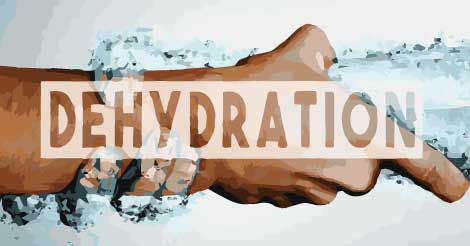The importance of drinking enough water
- Victoria van Tulder

- Apr 4, 2021
- 3 min read
“You have to stay hydrated” A phrase you might have read or heard many times. It has become common knowledge that water is good for you, but how exactly does proper hydration affect our physical and mental health?

The average adult human body is composed of 50-65% water. Your body uses water in all its cells, tissues and organs. Hydration helps protect our vital organs. For instance, the water in our body acts as a shock absorber for our brain and spinal cord. Another important organ, the kidney, is crucial in removing waste from your body and regulating both blood pressure and water balance. To function optimally, the kidneys require water. Dehydration can cause an individual to enter a hyponatremic state, which is a condition where sodium levels in the blood are abnormally low and can cause loss of energy, nausea, vomiting, confusion and muscle spasms.
Drinking enough water on a daily basis can increase our physical performance. During the day your body loses water through urine, sweat and even breathing. Dehydration can increase fatigue. Consequently, when you regulate your water intake you can maintain your energy levels high.
Consuming ample amounts of water can aid in the process of losing weight too. Water makes you feel full as a result of your stomach stretching and tricking your hunger sensors into thinking you are satiated. In addition, water contains zero calories and will therefore not add up to your daily calorie intake. Furthermore, drinking enough water promotes metabolism and people with a high metabolism tend to burn calories faster. (Nagdeve, 2020)
Consumption of adequate amounts of water is also known to improve the skin or complexion. The skin consists of about 30% water, which serves for its elasticity and plumpness. Drinking enough water can improve the thickness and density of your skin and helps your skin to stay hydrated. Additionally, a number of skin problems like acne, blisters and frostbite can be prevented by sufficient water intake. (Popkin, 2010)
Your airways are also dependent on hydration. The body will restrict the airways when dehydrated in an effort to minimize water loss. This can cause asthma and allergies according to James McIntosh (2018). Besides that, our blood is 95% water and blood is responsible for distributing nutrients and oxygen throughout cells in the whole body. As reported by Kristen Unger (2018), not drinking enough water can negatively affect the cardiovascular system. Dehydration raises the risk of an increased heart rate and increased blood pressure. Your cardiac output decreases significantly when you are not properly hydrated. This means that the amount of blood the heart can pump per beat to the rest of the body is reduced. Furthermore, dehydration increases the risk of orthostatic hypotension to occur. Orthostatic hypotension causes people to feel dizzy or even faint when they quickly shift from lying down to sitting or standing.
While many know about the benefits of drinking water for our body’s physical health, mental health can also be affected. Dehydration can impact our brain’s function significantly. This is no surprise, considering the fact that our brain is composed of 74.8% water. When the brain becomes dehydrated, it utilizes more energy to perform the same task as it would be hydrated. This can cause headaches, fatigue, irritability and a lack of focus. (Burton, 2019) Proper hydration is the foundation of good mental health. As stated in the World Journal of Psychiatry (2018), there even is a relation between dehydration and the risk of depression and anxiety. The study shows that people who drink 2.4 liters of water or more a day are generally happier and more positive than those who didn’t.
Ultimately, proper hydration is crucial for our physical and mental health. So grab your cup and start drinking water. Your body will love you for keeping yourself hydrated.
References:
Burton, N. (2019, August 11). Here's how just staying hydrated can help your mental health. Retrieved from Bustle: https://www.bustle.com/p/staying-hydrated-can-help-your-mental-health-research-shows-18181859
McIntosh, J. (2018, July 16). Fifteen benefits of drinking water. Retrieved from Medical News Today: https://www.medicalnewstoday.com/articles/290814
Nagdeve, M. (2020, October 26). 14 benefits of drinking water. Retrieved from Organic facts: https://www.organicfacts.net/health-benefits/other/health-benefits-of-drinking-water.html
Popkin, B. M. (2010, August 10). Water, hydration and health. Retrieved from Nutrition Reviews: https://academic.oup.com/nutritionreviews/article/68/8/439/1841926?login=true
Unger, K. (2018, December 18). The effects of dehydration on the cardiovascular system. Retrieved from Healthfully: https://healthfully.com/the-effects-of-dehydration-on-the-cardiovascular-system-4188855.html
World Journal of Psychiatry. (2018, September 20). World Journal of Psychiatry. Retrieved from NCBI: https://www.ncbi.nlm.nih.gov/pmc/articles/PMC6147771/









Comments